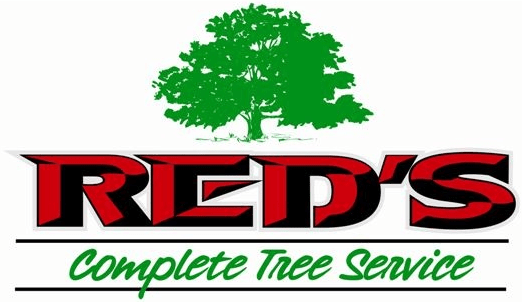Memphis Tree Service Shares Best Practices for Summer Heat
We’re all thankful for the cool shade of trees on sizzling Memphis summer days, but have you ever considered how trees themselves handle the heat, particularly when it’s above 90°F or record-breaking for your region? The greenery in your yard needs certain types of treatment to survive extreme temperatures, including watering and mulching. But first, you need to know the signs of “heat stress” to guide your regimen of care and tip you off when you need a Memphis tree service.
Is Your Yard Suffering Memphis Heat Stress?
The most common visual sign of heat stress is wilting, which indicates a lack of water. What you can’t see though is the closing of the leaves’ “gas exchange holes” called “stomata” which stunts growth as well. In desperation, a plant or tree may divest itself of some of its foliage to decrease demand for water, in turn losing some of its sources for gathering nutrients. If no relief is achieved, leaves will progress to a “yellow-white burn” or “crunchy brown” before dying. Beyond these heat stress signs that a plant or tree itself may give you, additionally consider how an environment affects hydration, since buildings or walls surrounding a plant or tree could stifle it with heat or burn it by reflecting sunlight.
Should You Fertilize In the Summer?
You might think that giving a plant nutrients is the best way to boost it through the boiling weather, but there is a real reason to exercise caution in the summer months when it comes to chemicals. Warmth often expedites a plant’s normal growth cycle, so nutrients are absorbed quicker than usual, which could lead to “fertilizer burn.” If you want to know more about how deep root fertilization could benefit your yard when implemented properly, please feel free to ask our Memphis tree service team for expert advice.
How to Water Your Trees
There are several best practices for watering trees during the summer. First, do your watering as the sun is rising (around 5 or 6a.m.) or setting to prevent the sun and heat from evaporating the water before the roots can absorb it.
Additionally, it is better to water deeply than to water too frequently because overwatering drowns the roots so they can no longer obtain oxygen, and shallow watering produces shallow roots that are likely to rot. Watering deeply also creates a source of water stored away from sun and heat for a plant to use in times of drought. A helpful rule of thumb for determining watering depth is to push a screwdriver into the ground, and if it “meets resistance, keep watering.”
To allow the roots ample time to absorb the water, watering should also be done slowly, if possible by hand with a hose, or with drip irrigation tools like “tree gators.” To ensure you are keeping a steady pace, count to 10 before you move on to another plant.
What are the Benefits of Mulch?
Watering alone won’t always accomplish hydration, so mulch becomes beneficial by maintaining a wet environment that prevents the plant or tree from getting too heated. Two to four inches of mulch is an excellent way to repress weeds around a tree and transport oxygen and nutritious organic waste to the soil in your yard. By taking the place of grass, mulch shields a tree’s roots from the damage of mowing and allows the tree unrivaled access to water. Our Memphis tree service team would be happy to tell you more about mulching if you have additional questions.
Memphis Tree Service Prevents Storm Damage
Heat isn’t the only concern you should have for your trees this time of year. The lightning and wind of summer storms can wreak havoc on weak or diseased tree limbs, so it’s best to hire a Memphis tree service like us to identify potentially problematic branches and prune them before they fall unexpectedly in a summer shower. We also provide emergency tree care after storms have come through the area. Contact Red’s Tree Service today for tree trimming, deep root fertilization or removal of troublesome trees, tree pests, and stumps. We would also be glad to share more advice with you on best practices for dealing with summer heat in your yard.
